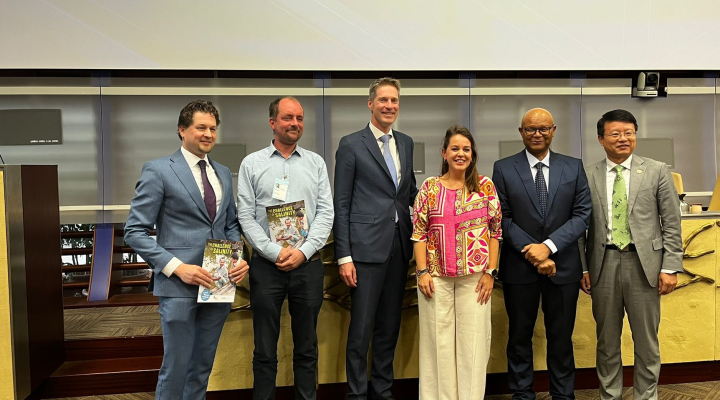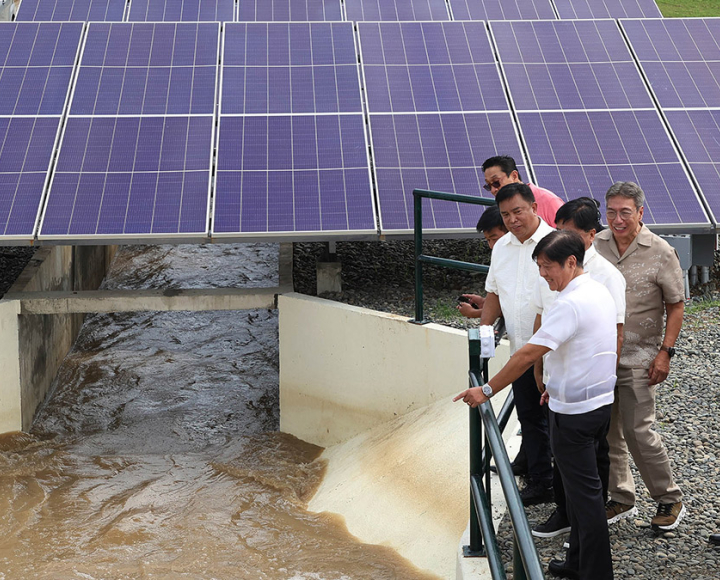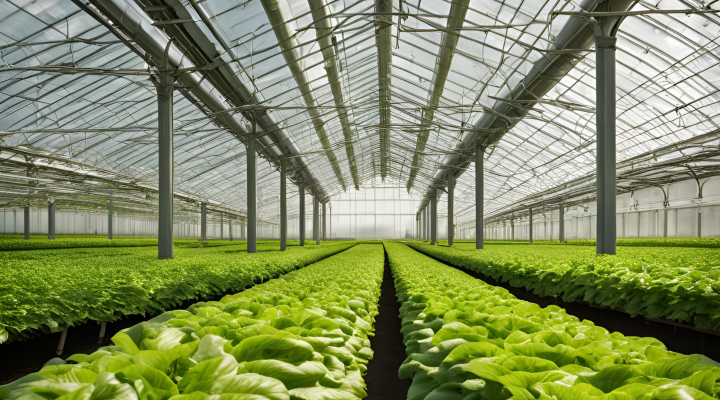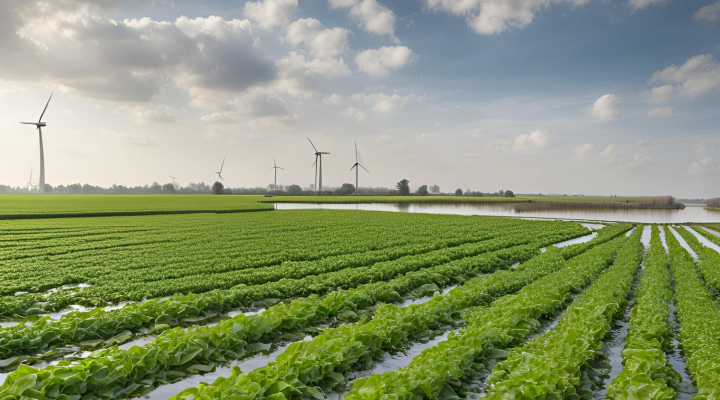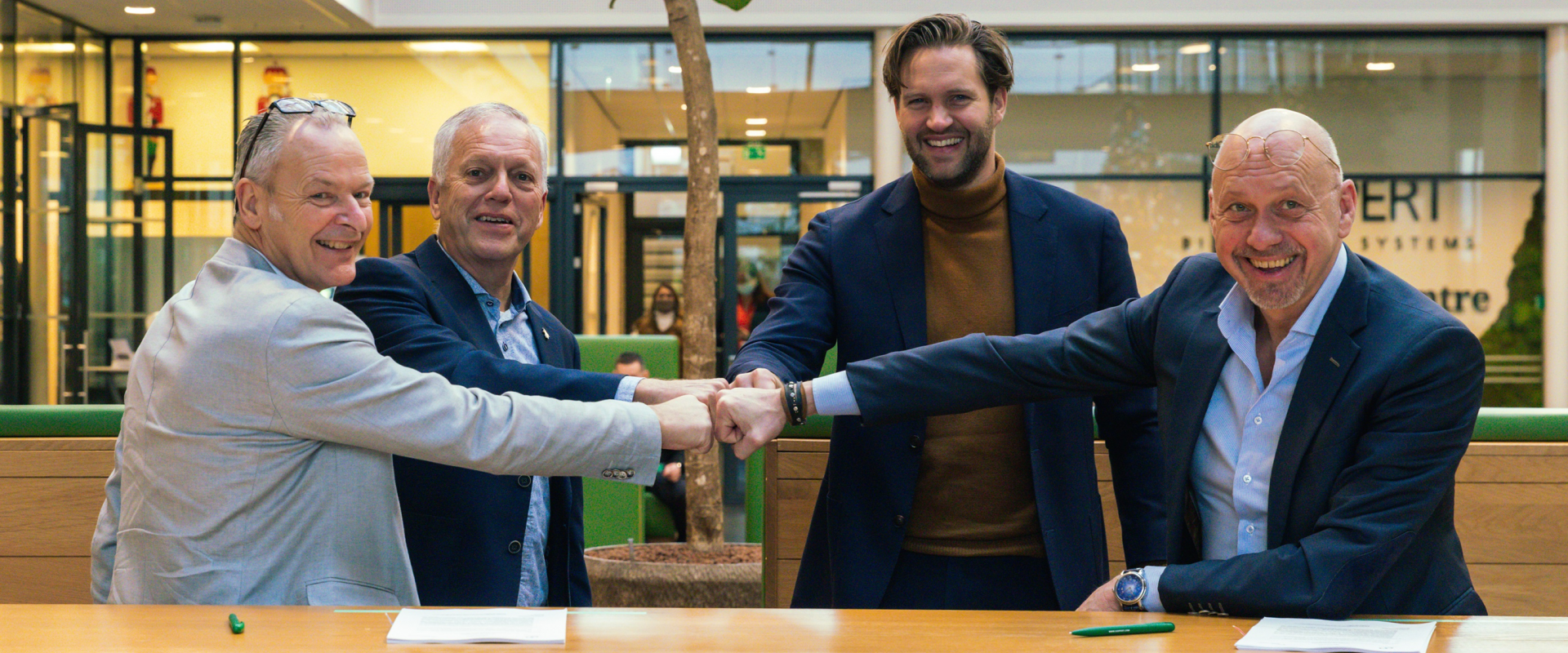
New application for from wastewater-sourced biopolymer Kaumera
Koppert Biological Systems recently signed a multi-year contract with Royal HaskoningDHV for collaboration on the application of Kaumera as a biostimulant. The two companies were brought together by ChainCraft, the organisation that is tasked to investigate the different applications of this sustainably sourced biopolymer from wastewater.
Value from wastewater
The collaboration is an important step for the development of Kaumera, as it demonstrates that the market also has confidence in its application. “Wastewater is available worldwide and much of it still contains valuable components – making it a perpetual source of raw materials." says René Noppeney, Global Director Water Technology Products at Royal HaskoningDHV.
The granular sludge that is formed as part of the Nereda wastewater treatment process, a purification solution by Royal HaskoningDHV, contains a biobased raw material called Kaumera. This natural biopolymer can be used for various applications, including as a biostimulant for agriculture and horticulture.
In creating value from wastewater, the three parties are taking an important step towards the circular economy.
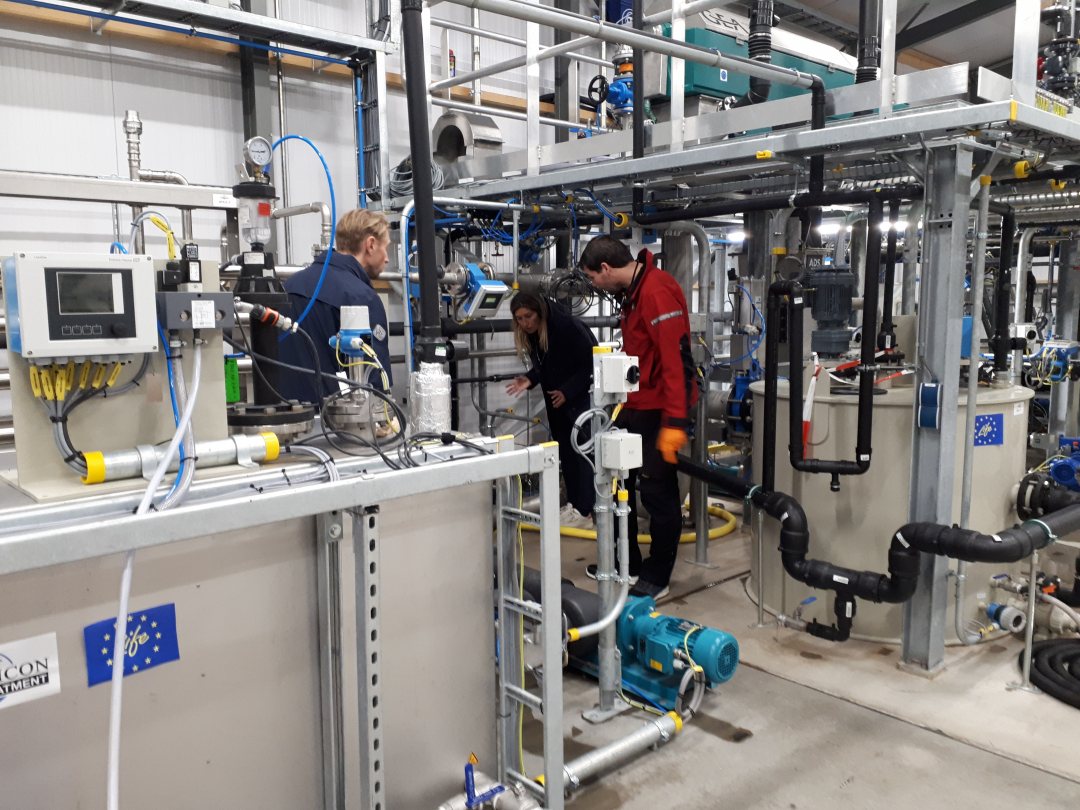

New raw material
Koppert has been trialing Kaumera for two years. Harald Mikkelsen, research initiator at the company, is involved in the project: “Kaumera appears to be a good and sustainable replacement for the seaweed we use as raw materials in a number of our products. In addition, Kaumera contributes to a good release of the agri-products which stimulates growth and soil life. In short: Kaumera definitely has added value.”
Biotechnology company ChainCraft is also affiliated with the programme, investigating different applications of Kaumera and bringing them to market. “We saw a lot of potential for the use of Kaumera as a more sustainable ingredient for the agri sector. With Koppert’s commitment to sustainable solutions for the sector they were the ideal partner for us” says Niels van Stralen, Director of ChainCraft.
Henri Oosthoek, CEO of Koppert, underlines this. “Kaumera helps us to make our selection of raw materials more sustainable and to take steps towards circular working. The product is made from wastewater; you can’t get much more cradle-to-cradle! It fits in seamlessly with Koppert's pioneering mentality: we continuously innovate to stay ahead of the game.”
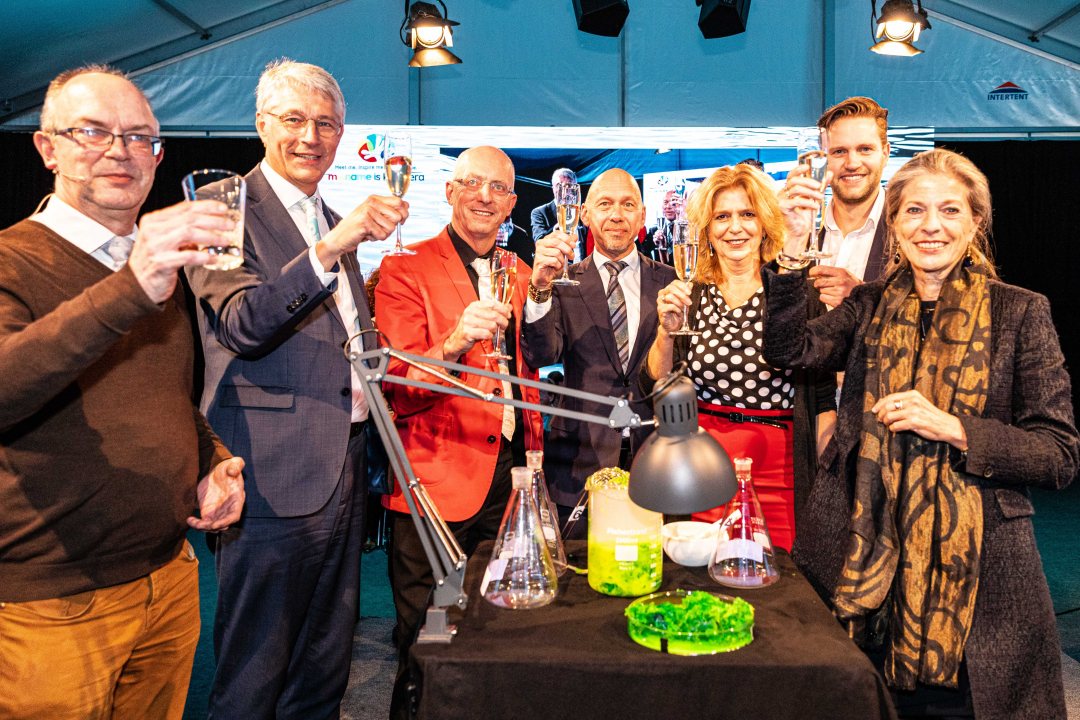

Partnership for resource recovery
Raw materials are becoming more scarce, creating a bigger need for circular solutions. The introduction of Kaumera offers a huge step forward for resource recovery and the circular water economy.
At this moment, Kaumera is only extracted in the Netherlands at two wastewater treatment plants. The recovery of Kaumera from wastewater takes place within the Dutch National Alginate Development Programme NAOP. In this programme, the Vallei and Veluwe Water Authority, Rhine and IJssel Water Authority, the Dutch Foundation for Applied Research in Water Management (STOWA), the Royal HaskoningDHV engineering consultancy and Delft University of Technology work closely together. The initiative receives support from the European Commission through the LIFE programme.




